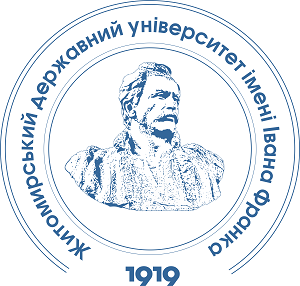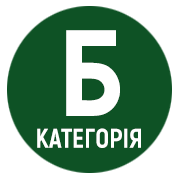BASIC FUNDAMENTALS OF DEVELOPMENT OF SOCIAL AND EVERYDAY SKILLS IN PRESCHOOL CHILDREN WITH INTELLECTUAL DISABILITIES
DOI:
https://doi.org/10.32782/psy-2025-5-2Keywords:
children with intellectual disabilities, preschool age, social and everyday skills, self-care, personal hygiene, social skills, correctional workAbstract
The article is devoted to the theoretical foundations of the formation of social and domestic skills in preschool children with intellectual disabilities. The features of the psychophysical development of such children, the types of social and domestic skills and the specifics of their formation, as well as the problems that children encounter in the learning process are considered. Social and domestic skills include self-service skills (dressing, undressing, eating), personal hygiene skills (bathing and self-care), social skills (interaction with peers and adults), which are basic for everyday life and provide the child with the opportunity to function independently. The formation of social and domestic skills in children with intellectual disabilities occurs with a significant lag and qualitative originality compared to their peers with typical development. It was also found that children with intellectual disabilities have significant difficulties in planning, organizing and controlling their activities in everyday situations. This indicates the possibility of additional special work on the part of parents to develop executive functions and self-regulation skills. An important aspect of the formation of social and everyday skills is the use of an individualized approach that takes into account the characteristics of each child. For high-quality and effective correctional work during the training of social and everyday skills, it is advisable to know the current level of formation of educational and preeducational abilities, both in the dynamics during correction and at its beginning. Attention is paid to the issues of cooperation with parents, their active participation in the educational process, conducting consultations, seminars and trainings for parents contributes to better results in the formation of social and everyday skills in children. The need to use special methods, an individualized approach, support motivation and create favorable conditions for the formation of social and everyday skills in children with intellectual disabilities is considered.
References
Блеч Г. О. Комплекс програмно-методичного забезпечення «Зміст корекційно-спрямованого навчання і виховання розумово відсталих дітей у спеціальних дошкільних закладах» (програма, методичні рекомендації та дидактичний матеріал з формування уявлень про навколишнє середовище). Киів : 2012. 96 с.
Галецька Ю. В. Формування соціально-побутових навичок у дітей з помірним та тяжким ступенем інтелектуального порушення. Кам’янець-Подільський, 2019. 197 с.
Трикоз С. В., Блеч Г. О. Дитина з порушеннями інтелектуального розвитку. Харків : Вид-во «Ранок», ВГ «Кенгуру», 2018. 40 с.
Литвиненко Л. В. Формування соціально-побутових навичок у дітей з особливими освітніми потребами на основі інноваційних технологій. Інноваційна педагогіка. Львів : Вид-во ЛНУ ім. І. Франка, 2019. Вип. 5. С. 72–79.
Роменська Т. Г. Соціально-побутові навички дошкільників із типовим розвитком та з дитячим церебральним паралічем: теоретичні витоки та сучасні напрями дослідження. Актуальні питання корекційної освіти (педагогічні науки). 2017. № 9(2). С. 153–167.
Синьов В. М., Матвєєва М. П., Хохліна О. П. Психологія розумово відсталої дитини. Київ : Знання, 2008. 359 с.






